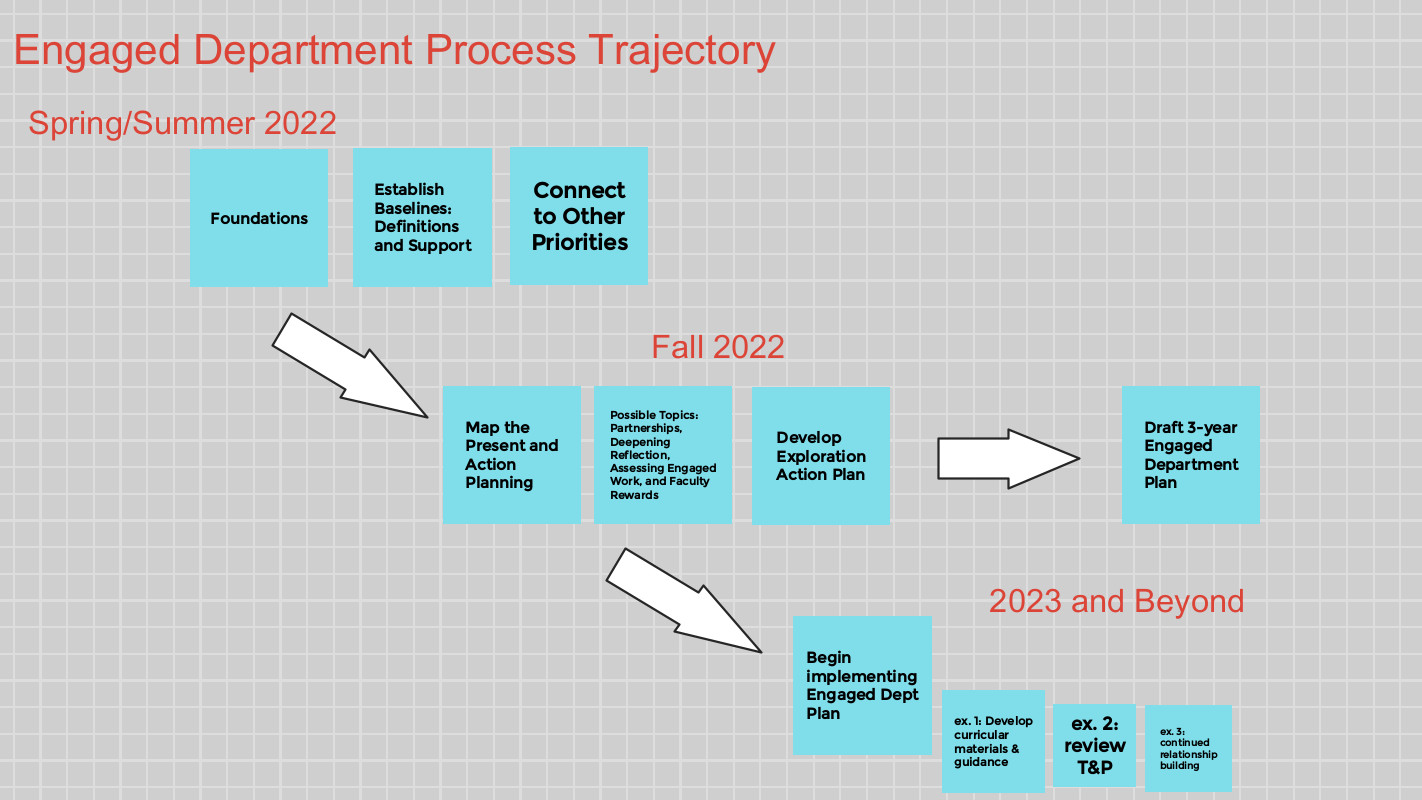Workshops and Communities of Practice
Fall 2022
October 6, 4-6 pm: Intercultural Praxis Model lecture and practicum workshop with Dr. Kathryn Sorrels from California State University Northridge. Sponsored by the NEH grant, “Reflecting on How to Create a Just World: Ethical Engagement with Community through Humanities.”
RSVP and more information coming soon!
November (date and time TBD): Critical Service Learning workshop with Dr. Tania Mitchell from the University of MN-Twin Cities. Sponsored by the NEH grant, “Reflecting on How to Create a Just World: Ethical Engagement with Community through Humanities.”
Engaged Departments
In the Engaged Department process, several or all faculty from a single department are led through a year-long process of becoming an “Engaged Department.” This often builds upon preexisting efforts and allows space for deepening the work and relationships with partners.
What does being an “engaged department” mean? It’s mobilizing a department to commit deeply to engagement with communities, local and global, outside of the academy and to building the next generation of changemakers through its experiences (curricular, co-curricular, and scholarship). Embedded within this work are meaningful experiences in civic action and opportunities for deep reflection, including discussions on ethical engagement with communities AND vocational discernment. The nature of vocation, as St. Olaf currently conceives of it, is inextricably linked to our relationships with others and a quest for our actions to be directed towards the common good; therefore exploring vocation means deeply understanding the ethics involved in community engaged efforts.
What is the Engaged Department process like?
The process absolutely negotiable depending upon a number of variables for each individual department, but it is an intentionally slow process that provides sustained learning, conversation and investigation before any actual implementation. It is not envisioned that ALL faculty are “engaged” with local and/or global communities in their teaching and scholarship (it’s not in everyone’s vocation or interests!), but that the department as a whole supports those who are through its resources and recognition. A longer process provides the necessary time, too, to build relationships with potential partners outside of the St. Olaf community. Here’s a flow chart graphic that depicts what one process could look like over the course of a year:

How can this work be sustained? Additional financial support may be available if brand new courses were to be developed as part of the engaged department effort and for acquiring supplies, as needed. Ongoing support in the form of course implementation and course development grants from the ACE office will be prioritized for engaged department work in the future.
Which departments are currently participating in this process?
Four departments are currently participating:
- Physics (implementation phase)*
- Music (planning phase)*
- Art & Art History (planning phase)#
- Asian Conversation (planning phase)#
Want to learn more? Please email Alyssa Herzog Melby (melby1@stolaf.edu) for more information about the process or to get started.
* denotes funding for the process was provided by the Lutheran Center for Faith, Values, and Community’s NetVUE grant on student vocational reflection.
# denotes funding for the process was provided by the National Endowment for the Humanities American Rescue Plan grant, “Reflecting on How to Create a Just World: Ethical Engagement with Community through Humanities.”
You must be logged in to post a comment.